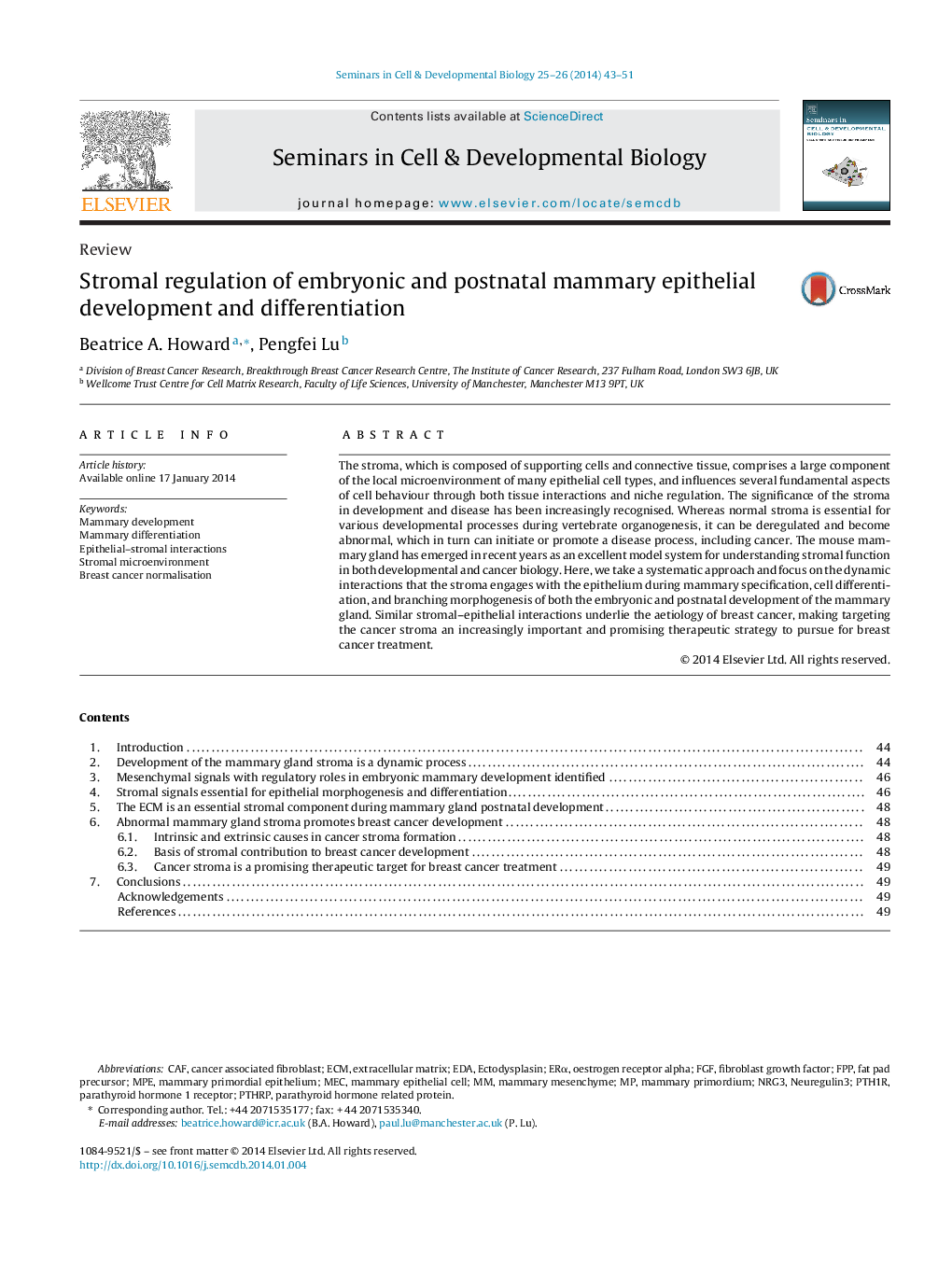| Article ID | Journal | Published Year | Pages | File Type |
|---|---|---|---|---|
| 2202654 | Seminars in Cell & Developmental Biology | 2014 | 9 Pages |
•Mesenchymal/stromal signals regulate prenatal and postnatal mammary development and differentiation.•Epithelia and stroma dynamically change throughout mammary development via highly regulated constant communications between mammary tissues.•Mammary stromal factors influence breast cancer cell phenotype.•Biological properties of mammary mesenchyme/stroma may provide basis to devise differentiation therapies for breast cancer.
The stroma, which is composed of supporting cells and connective tissue, comprises a large component of the local microenvironment of many epithelial cell types, and influences several fundamental aspects of cell behaviour through both tissue interactions and niche regulation. The significance of the stroma in development and disease has been increasingly recognised. Whereas normal stroma is essential for various developmental processes during vertebrate organogenesis, it can be deregulated and become abnormal, which in turn can initiate or promote a disease process, including cancer. The mouse mammary gland has emerged in recent years as an excellent model system for understanding stromal function in both developmental and cancer biology. Here, we take a systematic approach and focus on the dynamic interactions that the stroma engages with the epithelium during mammary specification, cell differentiation, and branching morphogenesis of both the embryonic and postnatal development of the mammary gland. Similar stromal–epithelial interactions underlie the aetiology of breast cancer, making targeting the cancer stroma an increasingly important and promising therapeutic strategy to pursue for breast cancer treatment.
